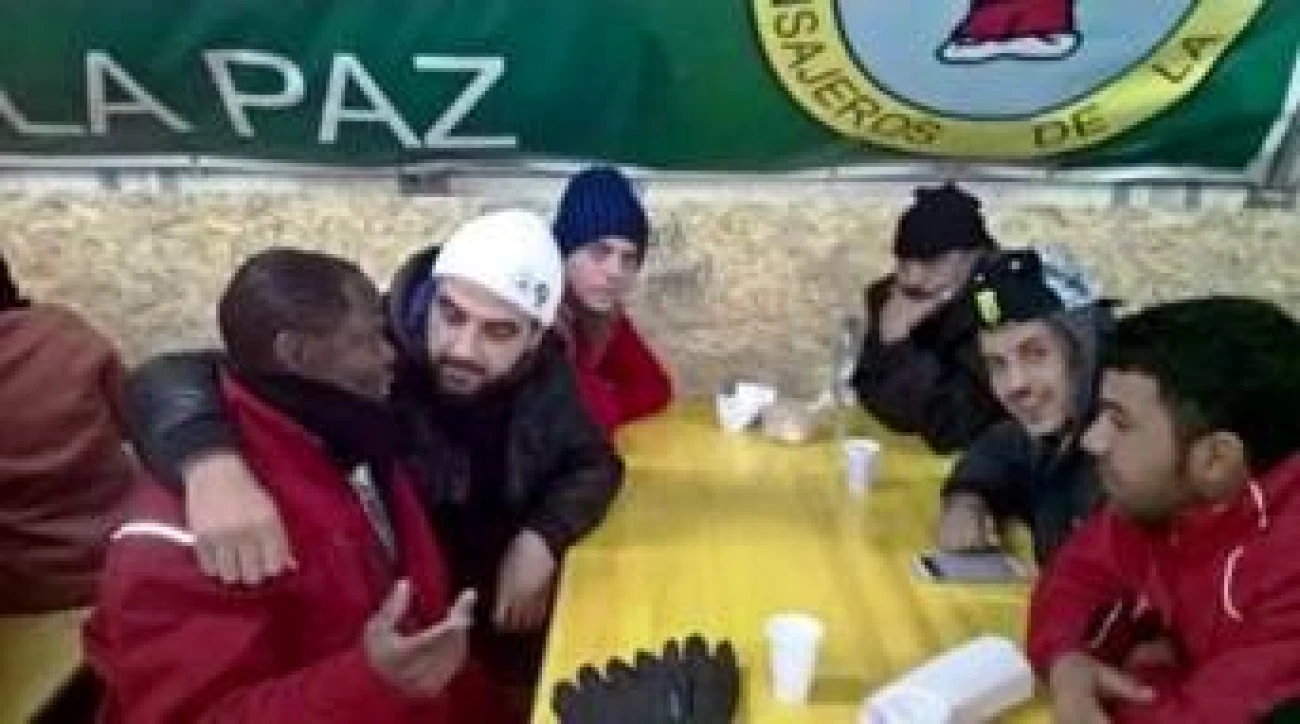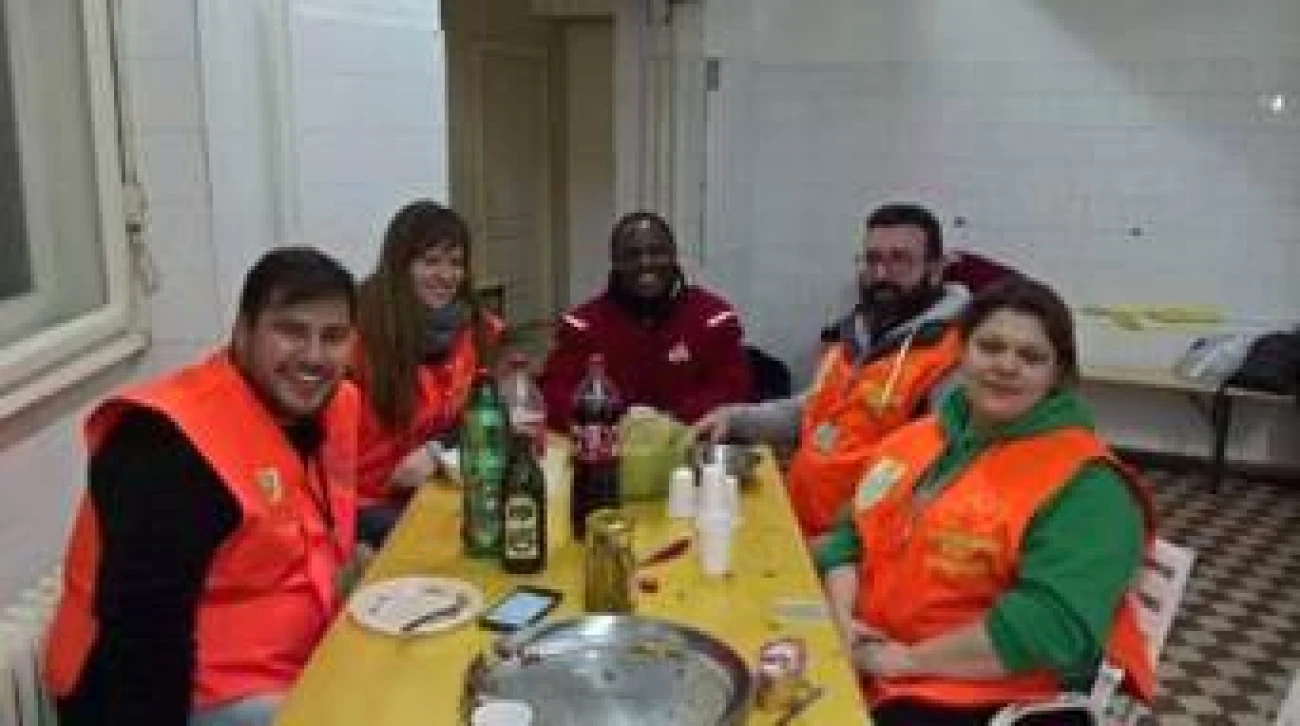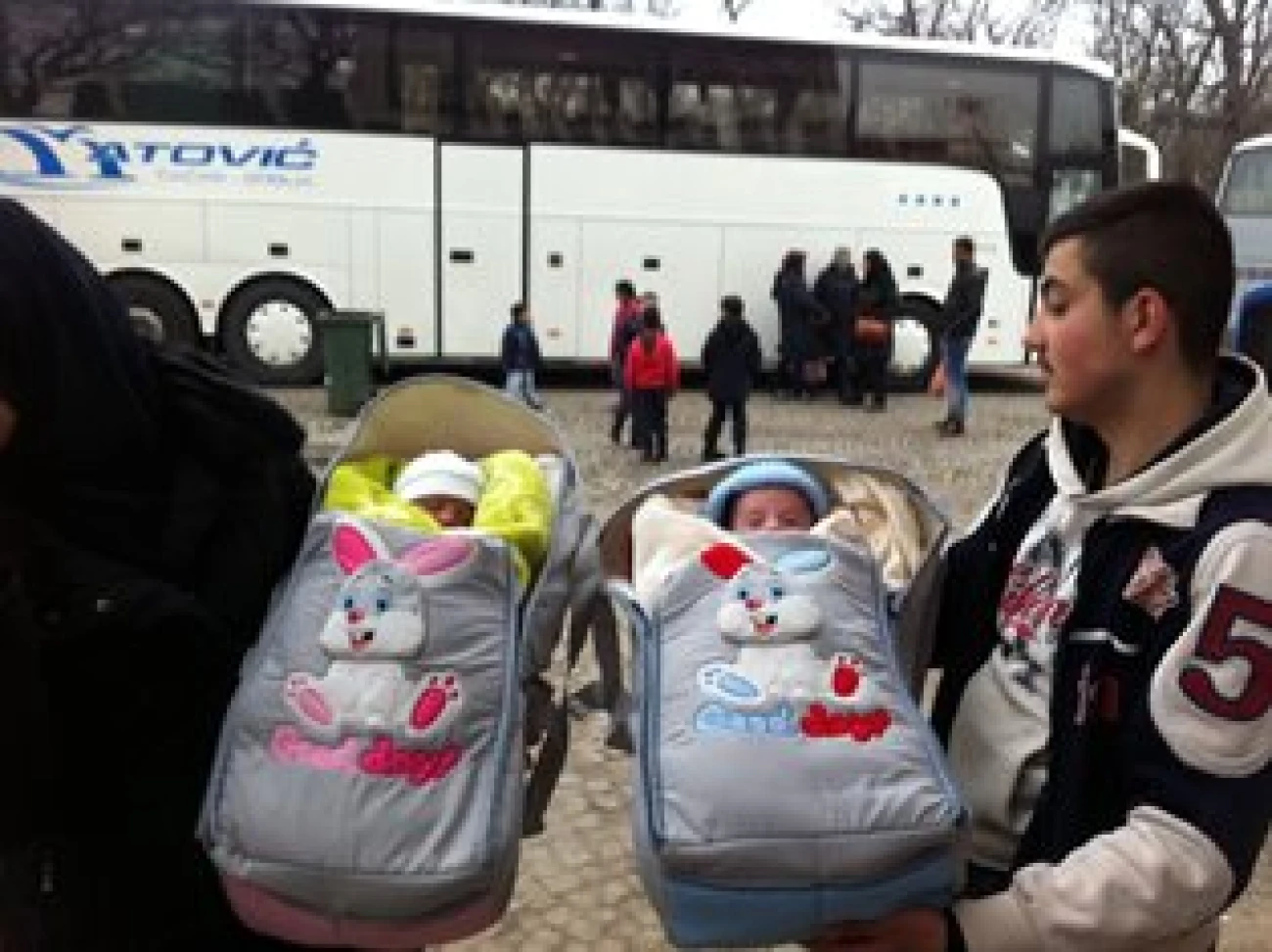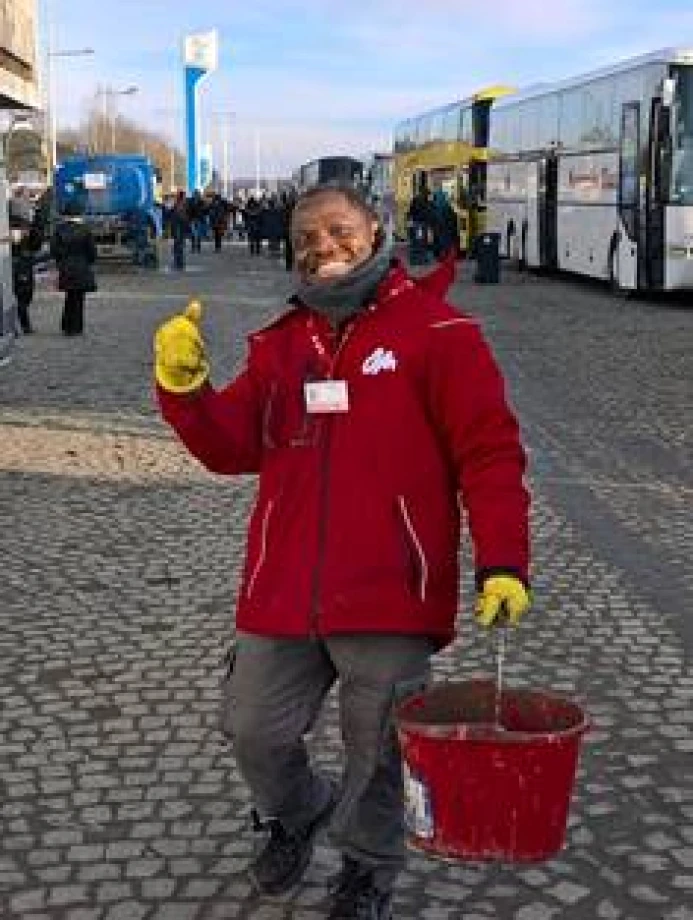Belvoir parishioner volunteers at refugee camp in Serbia
David Maganda (right) from Belvoir Parish, Belfast, has recently returned from 4 weeks volunteering alongside an Operation Mobilisation (OM) team in Sid (Serbia). Since November 2015 the team has been based on the Serbian/Croatian border, working with refugees fleeing from Syria, Iraq and Afghanistan. As David speaks Arabic, he was requested by OM to come and help with translation as they offer food, clothing and emotional and spiritual assistance to hundreds of mainly Syrian refugees.
Thousands of refugees pass through the camp each day. The trip from their country normally takes about a month or more, so when they arrive they are weary, hungry, sick, dirty, and despairing. Once in Sid, they board a train that will take them into Croatia, and then pass into Slovenia and Austria, and eventually on to Germany. This is one of five routes that refugees are taking into Germany right now.
A story from Iraq

Those coming from Syria and Iraq in particular have faced many harrowing circumstances. David came across 3 Iraqi men who told him they had been working in the army. One of them had been ordered to go and collect guns and give them to new recruits who were young people. His conscience wouldn’t allow him to give weapons to children, so as he went to the toilet, he decided to run away. One of the commanders saw him fleeing and ordered him to be shot. He was hit in both legs and his elbow, and fell to the ground. As they thought he was dead, they left him lying where he was. Passers–by provided him with assistance and he eventually managed to flee Iraq. He showed David the wounds that were still not healed, and looked infected. Others who were with him fled Iraq because they were being forced to fight and shoot others who refused. They couldn’t stomach the idea of killing their own people. (David with Iraqi men)

And yet in the midst of such inhumanity, there were funny moments. One Iraqi man couldn’t speak English and, figuring that most people couldn’t speak Arabic, tried to act out what he wanted to communicate to some of the team members. He kept drawing his finger across his throat and people wrongly assumed that he wanted to slit their throats so they were terrified of him. When David approached him, he spoke to him in Arabic and eventually he found out that the man was trying to ask if anyone had a knife, so he could cut his bread and share it with his friend. Everyone laughed. (The OM team in Sid)
There were many opportunities to listen, serve, encourage and minister to people who had lost everything and were on a journey, often not knowing where they were going. David said: “I was reminded afresh of verses in Leviticus 19: 33–34 ‘When a stranger sojourns with you in your land, you shall not do him wrong. You shall treat the stranger who sojourns with you as the native among you, and you shall love him as yourself, for you were strangers in the land of Egypt: I am the Lord your God.’ What a challenge for us as Christians to live out the love of God through what we do, and by what we say…..”
A family from Homs

One family that David met had travelled all the way from Homs in Syria. He asked them why they had risked their lives to cross over the water from Turkey to Greece when many of them couldn’t even swim. The father, Nazir, told David that he had been tortured by the Syrian security and army. While he was speaking, his wife was quietly crying. He told David that he’d rather risk his life and those of his family on a boat, than die at the hands of ISIS or the Syrian army. They lost many people on the way – but all were determined to flee the tyranny of the Syrian regime. (Twins born on the journey to the camp)
The refugees are traumatized, exhausted and desperate to find respite from their arduous journey. Many are frightened and scared of where they are going and often they think life in Europe will be like going to heaven. They have escaped and don’t want to look back. David was able to share his life story of how he lived as a refugee in Sudan in the early 80s. This helped people to open up and share their hopes and fears with him. He was also able to give them a realistic view of what it’s like to live in Europe, encouraging them to integrate and get fully involved in the life of the community where they will eventually settle.
“As I reflect back on my month in Serbia, says David, “there are many stories I cannot share and I’ve struggled to get my head round them. Please continue praying for our governments to have compassion and that the Church will demonstrate the love and grace of God to those who land on their doorsteps.”
David is hoping to go back in April to help out with the team, as they are in desperate need of mature volunteers (over the age of 20) in Serbia who can cook, clean, listen and play with kids. The need is great.
